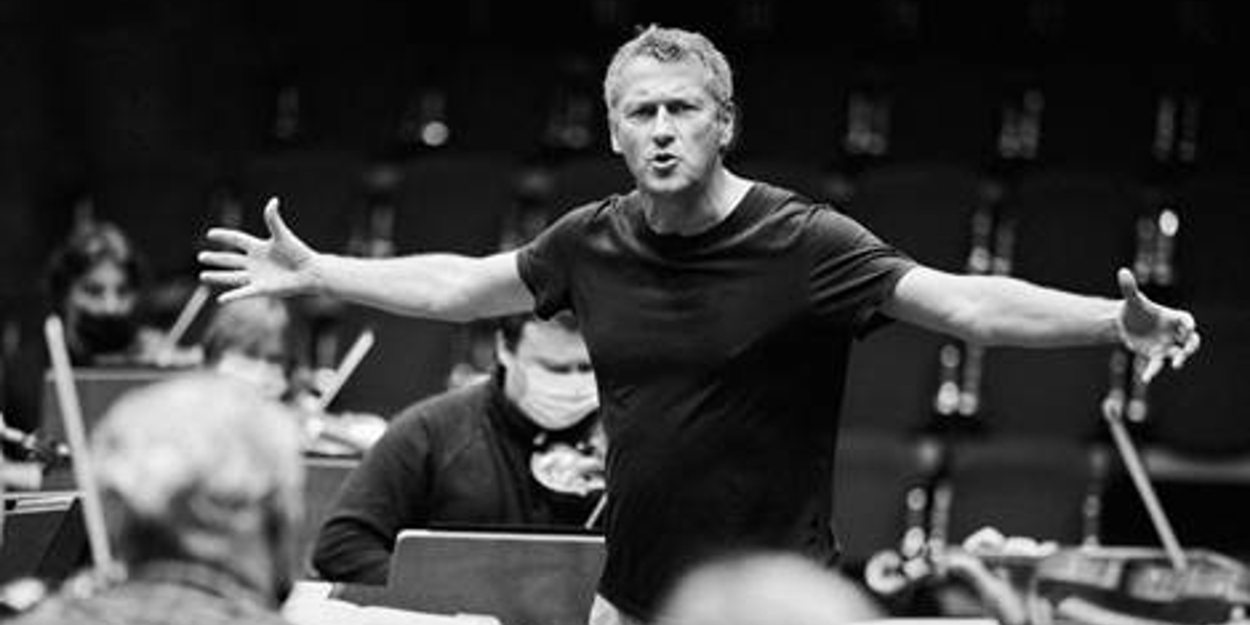Audience Favorite And Brahms Expert Markus Poschner Returns To Conduct Brahms' Symphony No. 2
Markus Poschner Returns to Conduct Brahms' Symphony No. 2 in Utah Symphony Season

![]()
As the season slowly shifts from the dappled colors of autumn to the softer shades of winter gray, the Utah Symphony presents Brahms' Symphony No. 2, led by the expert hand of returning guest conductor Markus Poschner—highlighting a vibrant program that mirrors the age-old cycle of the seasons.
In addition, the Utah Symphony will perform two works emphasizing this common thread of evolving cycles—Mathilde Wantenaar's Prélude à une nuit américaine and Strauss' Death and Transfiguration. Two evening performances will take place on Friday, November 17 and Saturday, November 18 at 7:30 PM at Maurice Abravanel Hall in downtown Salt Lake City.
The evening begins with Mathilde Wantenaar's Prélude à une nuit américaine—a modern composition that offers a glimpse into the theme of an American night, portraying life's exhilarating adventures through built anticipation and instrument harmonies. “I am an admirer of Ravel and Debussy, but also of Tchaikovsky,” says composer Wantenaar. “My intention was to write equally beautiful, long-held string lines. I studied how to build up such an expansive arc of tension and what harmonic progressions would help me realize it.” As such, the piece brings a sense of modernity portraying the pulse and dynamism of American culture, drawing connections to the energy and vitality of life.
In stark contrast to the lively energy of Wantenaar's piece, Richard Strauss' Death and Transfiguration takes the audience on a contemplative journey of introspection. The composition explores life, death, and the ultimate mystery of what lies beyond earthly existence—something that weighed heavily on Strauss' mind. In fact, the composer asked one of his dear friends, a poet named Alexander von Ritter, to pen a brief poem based on the same theme. Together, these creative works bear the weight of the human condition, reflecting on the trials of mortality and the longing for transcendence. When performed for audiences in 1890, French critic Romain Rolland stated that the piece was "one of the most moving works of Strauss, and that which is constructed with the noblest utility."
The crown jewel of the evening's program is Brahms' Symphony No. 2. Led by the skillful hand of Poschner, this composition brings audience members full circle with its exuberant character that celebrates the joy of living. A world-renowned expert in regard to Brahms and his music, Poschner brings a revitalized interpretation of this audience favorite to Abravanel Hall. With his profound understanding of the piece—as well as his passion for the composer—Poschner captures Brahms' essence, revealing the composition's nuances, emotional depth, and vivacity. He aptly conveys the brightness of the composition by emphasizing the interplay between different sections of the orchestra, and under his capable direction, the orchestra explores the symphony's thematic development—highlighting its bright, resonant key of D major and its abundance of lyrical themes. Overall, Poschner will bring a rich and authentic interpretation to what is aptly dubbed Brahms' “sunniest” work.
For more information, please visit utahsymphony.org/brahms.
Comments
.png)
|
.png)
|
Videos


